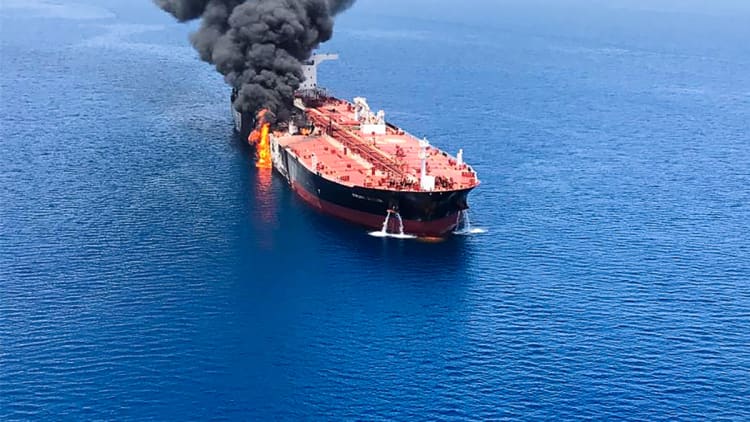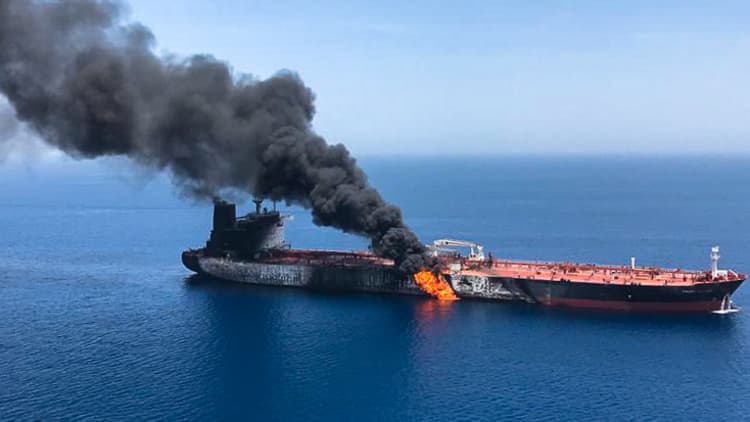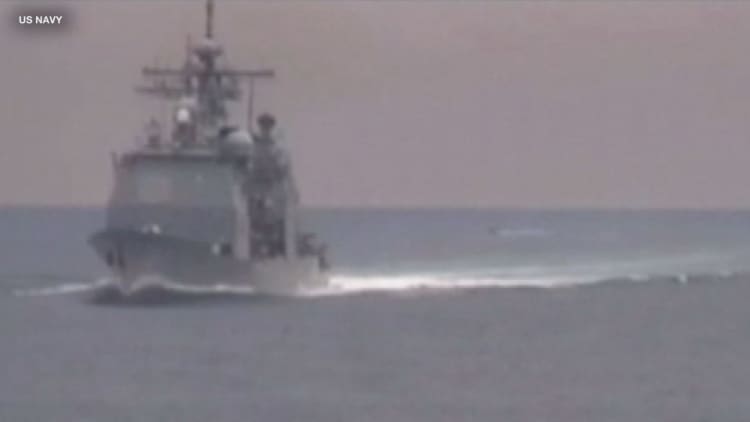
The war of words between the U.S. and Iran took a dangerous turn after two ships were attacked in the Gulf of Oman. One of the tankers was operated by a Japanese company.
They were hit Thursday, the same day Japanese Prime Minister Shinzo Abe met with Iran's Supreme Leader Ayatollah Ali Khamenei and President Hassan Rhouhani.
The Trump administration put the blame squarely on Iran.
"It was not an accident that the Japanese tanker was attacked," said Alireza Nader, who heads the New Iran Foundation, a Washington-based think tank that opposes the Islamic Republic. "This was a very blunt warning. Iran is saying to the world we are able to disrupt the world's oil markets and we're going to do it."
But not everyone is convinced. "You have to fully understand what happened before you start shooting" said Mark Cancian, a defense expert with Center for Strategic and International Studies and a former colonel in the Marines with decades of operational knowledge of naval combat.
"The Department of Defense will be reluctant to retaliate until they are certain what happened and who fired on whom, and why," he said.
The U.S. has been beefing up naval and air power, capable of striking Iranian forces in the Persian Gulf over the last month after the White House said it had information about possible future attacks against American interests. The Pentagon would not say Thursday whether there were plans to speed the buildup.
Nader and Cancian believe it's possible Iranian-funded Houthi rebels, who are mired in a civil war in Yemen, may be to blame. If that's the case, "the U.S. will not want to get involved in a shooting war over Yemen," Cancian said.
It will likely take days, weeks or even months for the military to go through the forensics needed to find out exactly who is behind the attack. But if it is determined to be Iran, Cancian believes the U.S. forces in the area will make quick work of Iran's navy. "The U.S. has assets designed to take on Russia and China. Iran's ships are very exposed. I'd expect the U.S. would be able to sink Iran's navy in about two days."

There are, however, problems for military planners. Iran has invested heavily in a fleet of small speed boats that are capable of overwhelming bigger U.S. ships. Military planners call this a "first-minute threat."
"Once the shooting starts," said Cancian, "those smaller boats will be the first target of the U.S. Navy."

Iran, according to Nader, is under increasing pressure due to a new wave of American sanctions. "The regime is desperate because the economy is being choked off," he said. "Khamenei and Iranian officials did not realize how hard sanctions would hurt oil, petrochemicals, steel and minerals, the core of Iran's economy."
This is the second time in a month Iran is being blamed for attacking international shipping. Last month, four ships were hit by limpet mines off the coast of the United Arab Emirates. Limpet mines are magnetic and are often attached to a ship by an underwater attack team.
While it's too early to tell, there is speculation similar mines may have been used in this latest attack, after being attached to the tankers while docked.


